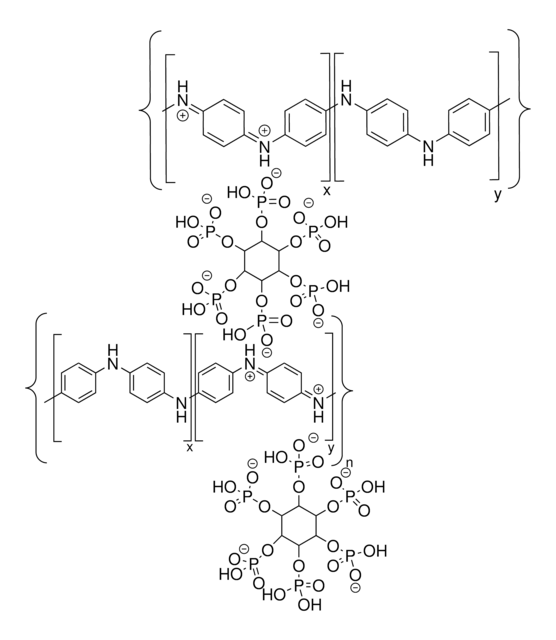482552
Polypyrrole
doped, 5 wt % dispersion in H2O, conductivity >0.005 S/cm (dried cast film)
Synonym(s):
PPy
About This Item
Recommended Products
contains
proprietary organic acids as dopant
greener alternative product characteristics
Design for Energy Efficiency
Learn more about the Principles of Green Chemistry.
sustainability
Greener Alternative Product
concentration
5 wt % dispersion in H2O
greener alternative category
InChI
1S/C4H5N/c1-2-4-5-3-1/h1-5H
InChI key
KAESVJOAVNADME-UHFFFAOYSA-N
General description
- Ion exchange capacity.
- Electrochromic effects.
- Redox activity.
- Corrosion resistant.
- Catalytic activity.
Application
- conductive sensors for quality monitoring
- blended with nanotubes for supercapacitors
- nanowire actuators
- biosensors for drug delivery
- CO2 absorption materials
Packaging
Storage Class Code
10 - Combustible liquids
WGK
WGK 3
Flash Point(F)
Not applicable
Flash Point(C)
Not applicable
Personal Protective Equipment
Certificates of Analysis (COA)
Search for Certificates of Analysis (COA) by entering the products Lot/Batch Number. Lot and Batch Numbers can be found on a product’s label following the words ‘Lot’ or ‘Batch’.
Already Own This Product?
Find documentation for the products that you have recently purchased in the Document Library.
Customers Also Viewed
Articles
The application of conducting polymers at the interface with biology is an exciting new trend in organic electronics research.
Self-healing soft electronic materials offer potential cost savings and reduced electronic waste.
Self-healing soft electronic materials offer potential cost savings and reduced electronic waste.
Self-healing soft electronic materials offer potential cost savings and reduced electronic waste.
Our team of scientists has experience in all areas of research including Life Science, Material Science, Chemical Synthesis, Chromatography, Analytical and many others.
Contact Technical Service






